Three young sisters have died after an overcrowded rubber dinghy took on water in bad weather while trying to cross the Mediterranean Sea to Italy, a German non-profit organisation has reported.
The sisters from war-torn Sudan, who were nine, 11 and 17 years old, are the latest known victims of a migration route that has claimed more than 30,000 lives since the UN-linked International Organisation for Migration (IOM) started counting in 2014.
Volunteers with the German group RESQSHIP found their bodies after rescuing some 65 people from the unseaworthy boat in international waters north of Libya on the night of Friday to Saturday.
A fourth person was reported missing at sea.
Their mother and brother were among survivors who were brought to shore on the Italian island of Lampedusa late on Saturday, the group said.
According to the IOM, thousands of people attempt to cross the Mediterranean every year from Turkey and North Africa into Europe.
But given the risks involved in these dangerous crossings, thousands also die every year. So far, more than 32,000 people have died since the IOM began tracking migrant deaths in 2014.
Of these, according to the IOM, nearly 1,400 were children.
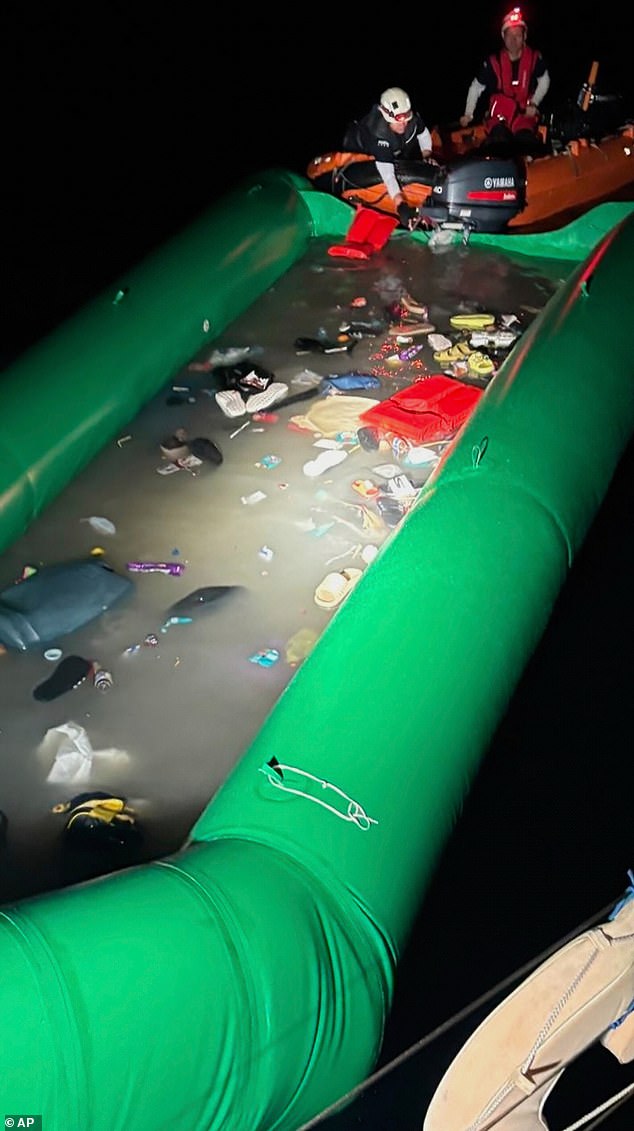
A partially flooded dinghy at the site of a rescue operation led by the crew of the vessel NADIR operated by the organization RESQSHIP in which over 60 people were rescued from an overcrowded and flooded rubber boat in the Central Mediterranean, early Saturday, Aug. 23, 2025
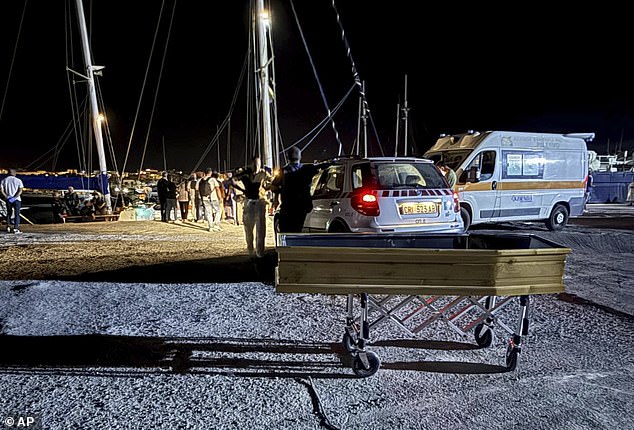
A coffin on the dock of the Sicilian island of Lampedusa, early Saturday, Aug. 23, 2025 as migrants that were rescued by the crew of the vessel NADIR operated by the organization RESQSHIP
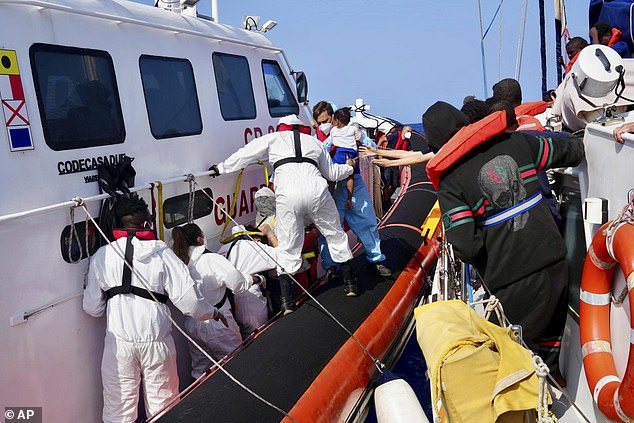
Italian Coast Guard personnel evacuate migrants from the vessel NADIR operated by the organization RESQSHIP
The peak of deaths was in 2016, when more than 5,000 migrants perished while trying to get to Europe.
So far, more than 1,000 people have died traversing the Mediterranean since January this year.
The vast majority of people who died drowned, but a significant proportion succumbed to poor environmental conditions, a lack of food and water, and accidents.
The green rubber dinghy that carried the migrants over the weekend had departed Zuwara in western Libya earlier on Friday.
‘The boat was really overcrowded and partially deflated,’ Barbara Satore, one of the rescuers, told The Associated Press.
‘It was a really pitch dark night with 4.9 feet waves, and the boat had been taking on water for hours.’
Ms Satore said they found it after an alert from the Alarm Phone network, which receives calls from migrant boats in distress.
It was only after rescuers evacuated around two-thirds of the people on board that the bodies emerged floating in a pool of water and fuel at the bottom of the boat.
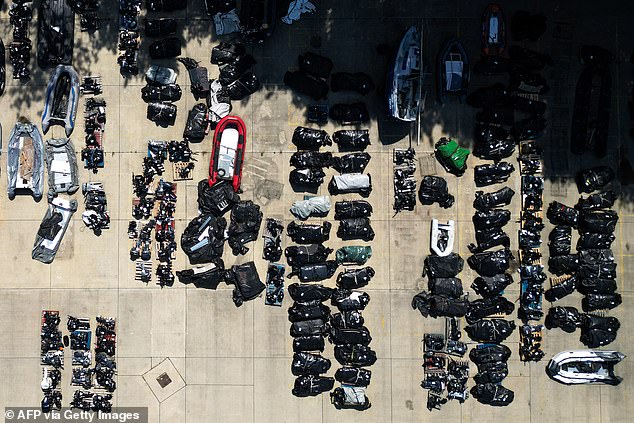
An aerial photograph shows inflatable dinghies and outboard engines believed to have been used by migrants to cross the channel and stored in a Port Authority yard in Dover, south-east England, on August 17, 2025
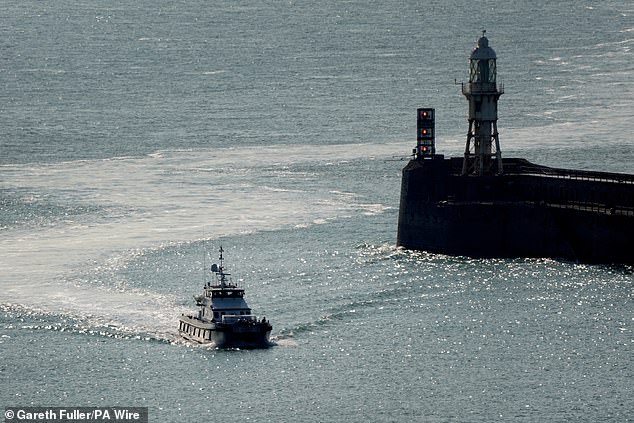
A group of people thought to be migrants are brought in to the Border Force compound in Dover, Kent, onboard a Border Force vessel following a small boat incident in the Channel. Picture date: Friday August 15, 2025
‘I heard a woman screaming and a man pointing into the water,’ Ms Satore said.
The darkness and weather conditions made the rescue very dangerous, she added.
‘The medical team attempted resuscitation but they had been underwater for an extended period of time.’
The mother remained in shock and sat next to the remains of her daughters aboard the rescue ship, Ms Satore said.
Relatives asked the crew for white sheets and wrapped the bodies with them.
Among the other people rescued were pregnant women and many children, Ms Satore said.
Four of them required urgent medical evacuation and were transferred to an Italian coast guard vessel alongside their family members.
Survivors came from Sudan but also Mali, Ivory Coast, Ethiopia and Eritrea she added.
Separately, a different Mediterranean rescue group said it had saved more than 50 people from one migrant boat but failed to reach a second boat in distress after it had been intercepted by Libyan coast guards.
‘The so-called Libyan Coast Guard and associated actors are accused by an independent United Nations Fact-Finding Mission of serious human rights violations and crimes against humanity in Libya,’ the SOS Humanity NGO said in a statement.
‘Forcing people who seek protection back to a country where they face torture and abuse is violating international law.’












